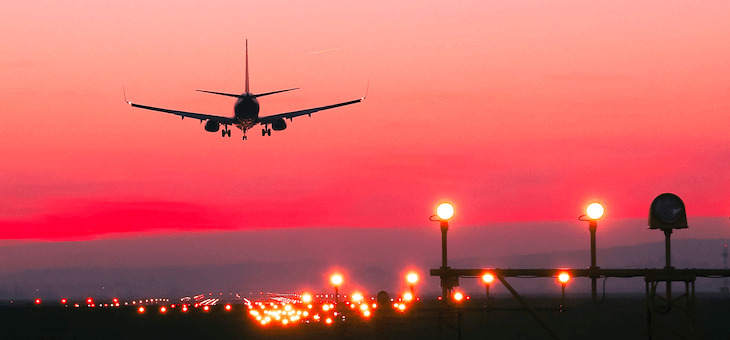There’s something about travelling through the air in a metal capsule that just feels unsafe.
Sure, there’s science behind how planes can withstand gravity. But do I, your average consumer, understand it? Absolutely not.
Flying’s become a little more nerve-wracking for me than it used to be, especially as I plan a trip to a faraway destination, and consider cheaper airlines I’ve never heard of.
But just because I’ve never heard of these small carriers, does it really mean they’re unsafe? How can I tell the dodgy from the dependable? I asked Chrystal Zhang, an aviation industry expert from RMIT, to find out.
Are budget airlines less safe?
According to Dr Zhang, flying budget isn’t likely to put you at risk.
“There is no statistically significant evidence to demonstrate budget airlines are less safe than what we call full-service carriers or legacy carriers,” she says.
“There is some anecdotal evidence in terms of the numbers of accidents that the low-cost carriers have experienced, but that does not rule out that the legacy carriers won’t also crash.”
She says it comes down to whether or not a company has a good safety culture.
If they do, they’ll prioritise safety over any potential monetary loss when it comes to grounding – and repairing – aircraft.
This can be hard to research yourself, but searching for your potential airline’s name and ‘safety culture’ can help you find information on their website.
Dr Zhang says you could keep an eye out for details about the type of the aircraft used on the flight you intend to book, the age of the aircraft, or the carrier’s plan to replace older planes with new ones.
This information can also be reflected through airline safety ranking websites – but Dr Zhang warns many of these sites are commercially owned.
“It’s absolutely a good reference source for travellers who want more information,” she says. “But you need to think about the source – where does that information come from?
“You still have to ask a few questions before you say: ‘This site says this airline is the best one, or this is the worst one. So I’ll just give it all my trust’.”
If an airline has crashed before, will it happen again?
For Dr Zhang, the past is the past, and one crash doesn’t indicate another in future.
However, she says it does show a bad record of safety performance. If an airline’s had an accident, she says you’d want to make sure they’ve learnt from it, and taken a holistic, systemic approach to taking safety seriously in future.
Again, this should be evident from the airline’s website, or from regulatory bodies.
Overall though, Dr Zhang says fatal crashes are very rare, as air travel is the safest mode of long-distance travel – you’re much more likely to die in a car crash than you are on a plane.
Where to find reputable airline safety information
It’s important to consider the home country of a particular airline, as this is where they’ll be regulated.
Almost all nations and territories are members of the UN’s International Civil Aviation Organization (ICAO), which sets out aviation safety standards and recommended practices. It also runs an audit program to test a country’s capability to follow these safety standards, and publishes the results.
Any airline flying to or from Australian airspace will also need to meet Australian safety standards.
Dr Zhang says if Australia’s regulator (CASA) finds a person or organisation is operating in a way that creates a “serious and imminent risk to aviation safety”, there’s a range of disciplinary options CASA may take, including suspending permission to fly.
Internationally, the EU blacklists a number of airlines and countries from operating in the region, which Dr Zhang says is also a good indicator of the “overall safety performance of that particular country, and [especially] with a particular airline”.
The United States Federal Aviation Administration (FAA) also conducts a safety assessment program to determine if countries are making sure their airlines adhere to ICAO safety standards. However, this only applies to countries with airlines that operate in the US.
The International Air Transport Association (IATA) runs a safety audit program on its member airlines, and you can look up to see if your chosen carrier has passed their check.
SmartTraveller also recommends the Aviation Safety Network as a reputable a database of an airline’s past safety incidents.
Dr Zhang says when choosing an airline, it’s important to consider more than just cheap fares – safety could be a consideration, and when travelling in a pandemic, she says checking refund and cancellation policies should come into your decision making too.
 2020 Australian Broadcasting Corporation. All rights reserved.
2020 Australian Broadcasting Corporation. All rights reserved.
ABC Content Disclaimer

